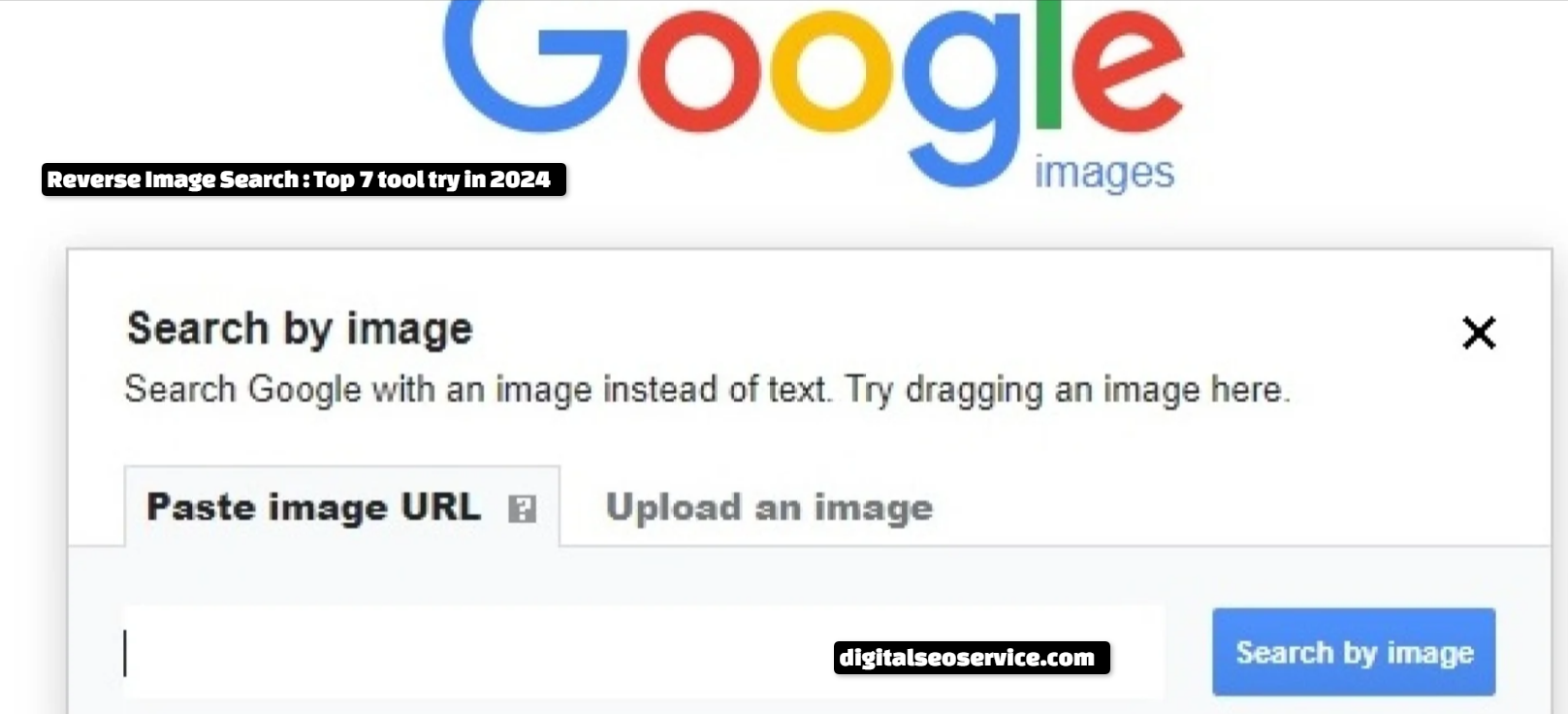The internet is full of billions of pictures available on the internet. How can you determine the source of these images if you wish to make use of some in your commercial or personal work?
Images you see when doing the Google search may be duplicates or stolen artwork, manipulated media and more. Do you have the ability to independently find the source of the image or determine if it’s genuine? Or, do you need an expert to complete the task for you?
If you’re discussing important legal copyright issues that are prominent and other legal issues, you will definitely require the assistance of an experienced professional. However, for daily usage, you can make use of reverse image search software.
Let’s look at a few of the most effective reverse image Search options. But if are interested in learning more about the reverse image search method go to the section “What Is Reverse Image Search?”.
Also Read: internet speed test : Top 10 tools We try in 2024
Best reverse image Search Tools for 2024
TinEye
TinEye is among the best alternatives that you can include in Google for quick searches.
It is necessary to upload your image or copy the URL to find out more by using TinEye. Although it’s free to begin with, they provide corporate/enterprise solutions to streamline image tracking and notify you when your image is accessed without permission.
Contrary to the typical software for image searching, this one concentrates on several aspects of computer vision and image recognition. Therefore, you can make the option to incorporate it into other tools to validate images or authenticate them when you are searching.
Reverse Image Search
Reverse Image Search isn’t an image search engine in itself However, it allows you to upload pictures and offers users the option of choosing among a variety of reverse image search sites (Yandex, Google, and Bing).
If you’re looking for a single shop that allows you to search quickly for images on the internet it could be helpful in this regard.
Pixsy
Pixsy is a fascinating reverse search tool for images that is required to sign up for in order to use it for free.
It lets you import photos from a variety of sources, such as social media platforms as well as cloud storage services. This can be useful. It is also possible to directly upload pictures directly from your computer in order to perform an online search.
Like TinEye, Pixsy also offers business and enterprise plans that allow you to automate tracking, while also getting legal assistance with copyright infringements, too.
Google Images
Google’s image Search is one of the best and most efficient reverse search engine you can utilize on your computer. They’ve got billions of photos from millions of websites to show.
If you are unable to find a similar image your image with different tools, Google Images should be the best option. It is not necessary to sign up for the service. Instead, you can upload your image, or copy and paste the URL for the image.
In contrast to other search engines that are able to find exact matches, even if no exact matches for the image that you uploaded, you’ll find plenty of similar (or themed) ideas.
Note that you won’t not have the option to upload or copy URLs of images using mobile browsers. To gain access to upload images, you must request the desktop website from the menu of your browser. Google might consider optimizing their site for mobile users.
Bing Visual Search
Google’s Visual Search is on the same level as Google Images. It also has an option to search in “text mode” that lets you choose any text element in the image you uploaded for reverse image results.
Naturally, you could also convert images into text, though this may not be useful.
There are additional benefits by using the text mode to locate quickly landmarks or objects. This is why it’s worth trying!
Yahoo Image Search
Yahoo Image Search is not able to upload images. This means that it’s not the best reverse search engine. However, you can use the metadata or name of the file that was used in the original image to scan over the data to determine whether it’s similar to something else.
While Yahoo may no more be a giant of the internet but it crawls some decent websites and information on various images. It is definitely worth taking a look.
Reverse Image
Reverse Image allows you to quickly determine the source of an image from the top search engines like Google, Bing, Yandex and Baidu.
One can input the topic images using image search, upload them locally or import them images from Dropbox and Google Drive or Google Drive, enter an URL, or utilize cameras to take pictures.
Reverse Image accepts files that are in JPG, JPEG, PNG or GIF format.
The forever free plan is ad-supported and allows a small number of daily image searches. Premium plans are ad free and includes features such as enhanced image searches, unlimitted use of tools as well as custom filters including search history, and many more.
In the next article, I will go over more in depth the reverse image searching method and the benefits it offers.
What is reverse image search?
Reverse Image Search is a method of searching for sources (or different sources) of an image. was taken.
If you’re curious about an image that is on your device, you could quickly use one of the apps available to reverse image search. You can also search for more details about the image.
There are a few instances that you could use reverse-image search instruments are:
- To determine if anyone is copyrighting your work without your permission
- To locate a person, or find contact information on the internet
- To verify the authenticity of an image
- To discover the origin of the image
- To spot fake news
You can conduct reverse image searches on the iPhone as well as an Android smartphone. All you have to do is open an internet search engine (Desktop or mobile) and upload the image.
Benefits of Reverse Image Search Tool
Search tools for reverse images offer several advantages.
- You can check the authenticity of an image no cost
- You can save time by avoiding the manual verification process of an image stored on your device, or on a account on social networks.
- Find royalty-free photos that you can utilize in your projects
- Find a settlement or a location from a forgotten photo in your loft
- Find out more information about unknown objects or unlabeled items
All of this can be done without need to pay an amount of money to use it. I believe that one of the greatest advantages of a reverse image search program is that you will be able to determine whether someone else has used the image or artwork you have created.
Image theft is commonplace and often difficult to stop. Therefore, a tool that can discover the identity of the image is useful to accomplish this task.
Closing Up
There are a variety of reverse image search tools that are available. Some are targeted at businesses and others provide an extensive selection of images that are not required to sign to sign up.
The tools listed in this article all serve similar functions, but with varying efficiency and use scenarios. Take your time and research to find the right tool for your needs.


